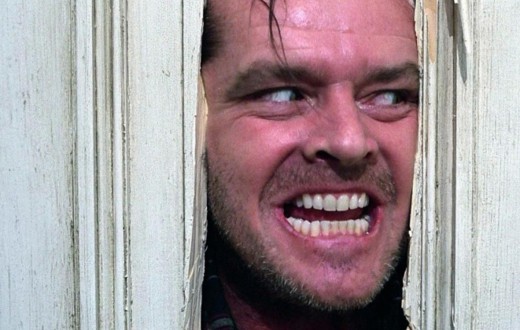Being a child actor comes with the responsibility of maintaining professional conduct both on and off the set. Proper set etiquette and on-set behavior are expected for kids to thrive in the industry while fostering positive relationships with cast and crew members. In this article, we’ll explore the importance of professional conduct and provide valuable tips on navigating set etiquette.
Respectful Communication
Effective communication is the cornerstone of professional conduct on set. Child actors must always remember to communicate with respect and courtesy towards their fellow cast members, crew and production staff. This includes using polite language, active listening and addressing others by their proper names or designated titles.
In addition, young actors should learn to express their thoughts and concerns constructively, ensuring their opinions are heard while maintaining professionalism. This involves being open to feedback and criticism and responding with grace and maturity. By practicing respectful communication, child actors can foster positive relationships and create a harmonious working environment on set.
No matter the age group of the child, it is crucial to uphold this kind of behavior, even though it may be challenging.
I remember being on the set of a commercial with six kids in the age range between 8 and 10 years old. Five of the kids sat with their parents, worked on homework or played their handheld games, while the sixth kid decided to run all over the place and even tried to “rock climb” a wall in the historic church we were being held in. At the end of the day, I heard the father asking why his child wasn’t used in the shoot.
Punctuality and Preparedness
Punctuality is a vital aspect of professional conduct. Arriving on set or to rehearsals on time demonstrates reliability and respect for the production team’s schedules. Child actors should strive to be prompt, allowing ample time for any necessary preparations such as wardrobe, makeup or vocal warm-ups.
The children should come to set familiar with their lines, blocking and any additional instructions given by the director. Being well-prepared not only showcases professionalism but also allows for smoother production processes and avoids unnecessary delays.
Always take into consideration that you may run into traffic, may get a flat tire, the public transportation is running late, bathroom breaks and a million other things that may delay you from arriving on time (“on time” is actually arriving 15 minutes earlier than your call time.)
When I was in a play in NYC as a child, my mom and I took the bus into the city from New Jersey. We always arrived early so we didn’t have to rush into wardrobe. Well, would you believe that one time, the bus was delayed for so long, that the entire play couldn’t start because I was in one of the very first scenes. As luck would have it, my mom happened to have my costume on hand because she took it home to wash, so I changed clothes while on the bus and my mom did my hair (double ponytails were a thing back then.) There were no cell phones back then, so my mom called the theater from a payphone to let them know our status. When we finally arrived at the theater, the director was happy to see I was already in costume and ready to go.
Since I was a kid, I really don’t know if any of the audience was upset or demanded their ticket money back, but now, as an adult, I’m pretty sure that may have happened.
Adaptability and Flexibility
Production schedules can be unpredictable and circumstances may change at a moment’s notice. Child actors must be adaptable and willing to adjust to new scenes, changes in dialogue or unexpected challenges.
Showing flexibility also extends to working with different directors and fellow actors. Child actors should be open to different acting approaches and be receptive to direction. They should embrace opportunities to collaborate and contribute creatively to their roles while maintaining professionalism and respecting the vision of the production team.
Set Safety and Boundaries
Child actors’ safety and well-being are of paramount importance on any set. They should be familiar with the safety protocols and guidelines in place, such as wearing protective gear and following instructions from the production crew. If a child actor feels uncomfortable or encounters any safety concerns, they should communicate it promptly to the appropriate adult on set.
Also, be aware of personal boundaries. The children should understand what is appropriate and inappropriate behavior and be encouraged to speak up if they feel uncomfortable or if their boundaries are being violated. Set environments should foster a safe and respectful atmosphere for all, and child actors play an active role in upholding these standards.
Gratitude and Professional Relationships
Expressing gratitude and maintaining positive professional relationships are essential for child actors’ long-term success. They should show appreciation to cast and crew members for their contributions and support, whether it is a kind word, a thank-you note or simply showing respect and appreciation on set.
Building strong professional relationships can lead to future opportunities and a positive reputation in the industry. Child actors should strive to be team players, treating everyone they encounter on set with kindness, respect and professionalism. This includes being supportive of their fellow actors, being mindful of their actions and avoiding gossip or negative behavior that could damage relationships or reputations.
Quick Tip: If you decide to buy a gift for someone, it’s important to consider their interests and passions. Take the time to learn about your coworkers’ hobbies and preferences so that you can personalize your present accordingly.
One last thing I want to add…
Integrity
The career path of child actors heavily relies on their integrity. The public attention they receive puts them in a difficult position where they must uphold a professional image while dealing with the difficulties that come with possible fame.
At its core, integrity refers to the ability to stay true to one’s values and principles, even when faced with difficult choices or challenging circumstances. It encompasses a range of traits such as honesty, fairness, responsibility and accountability.







